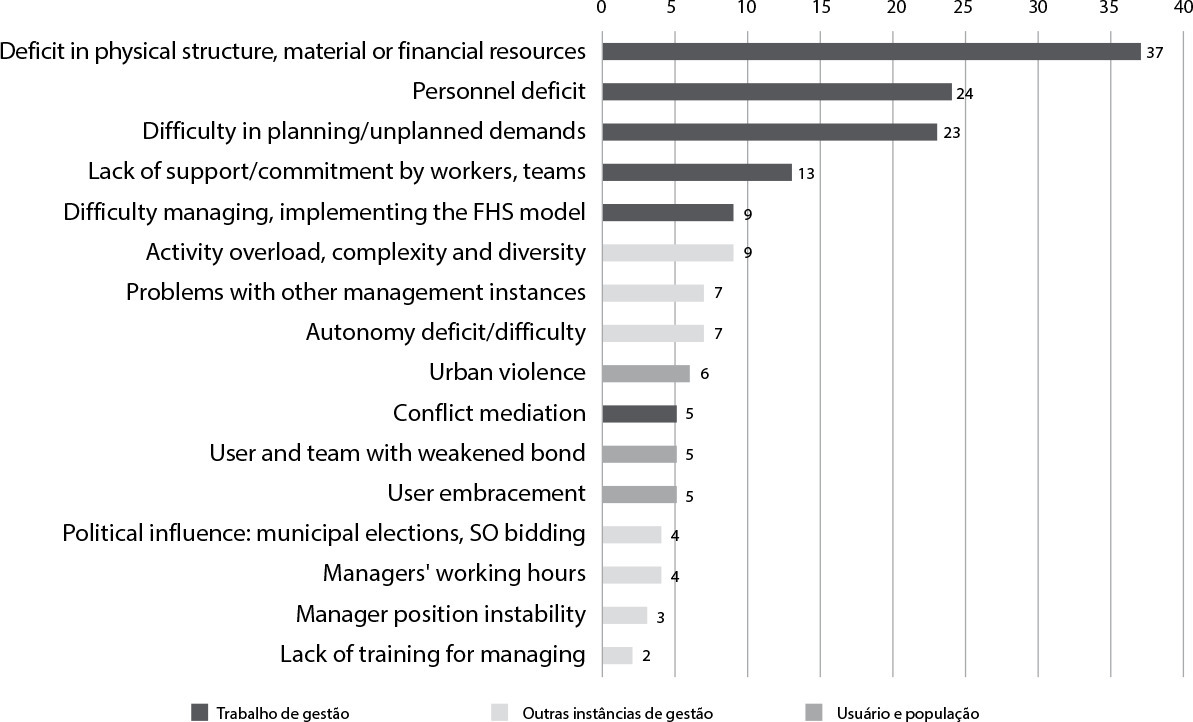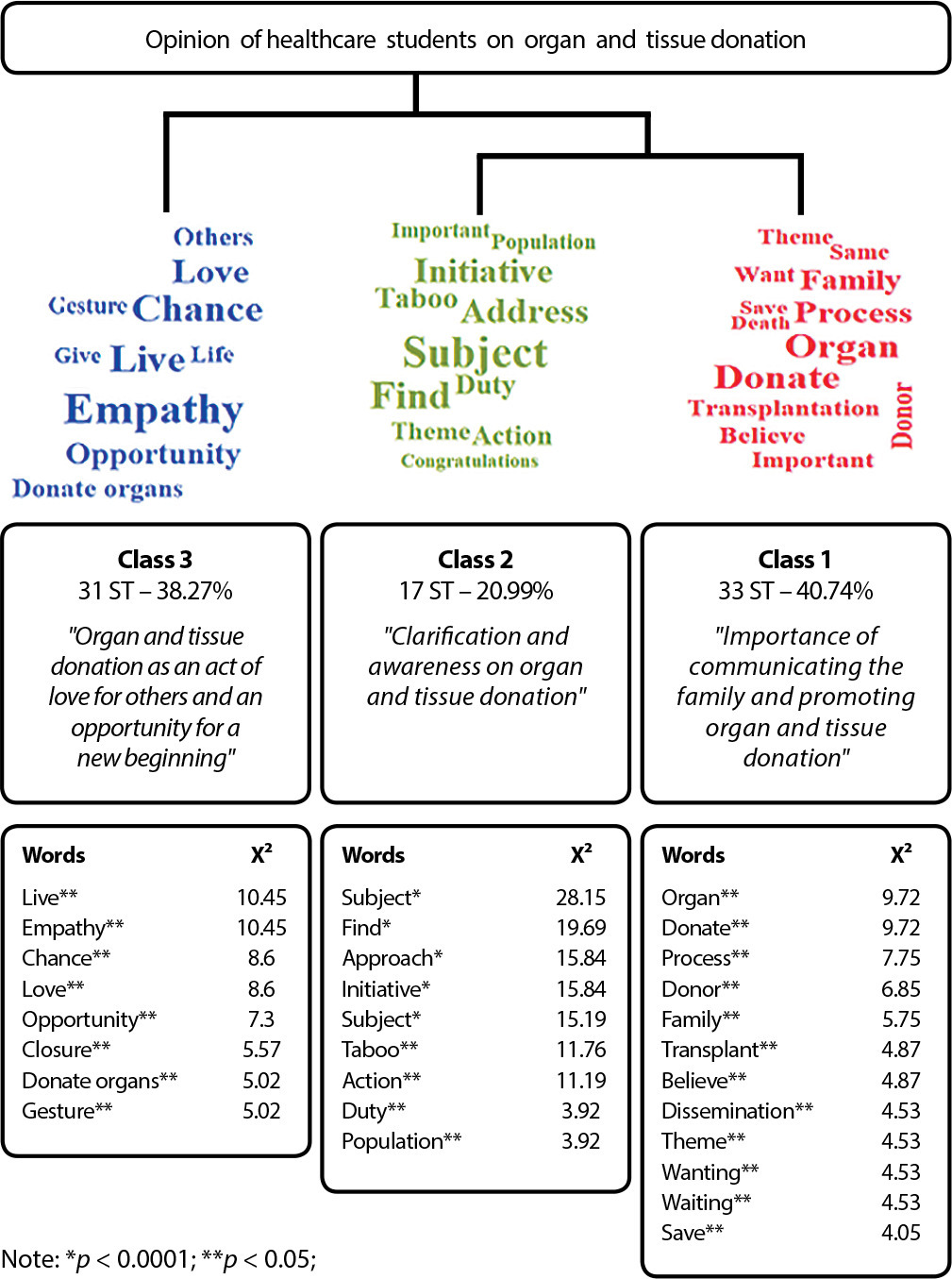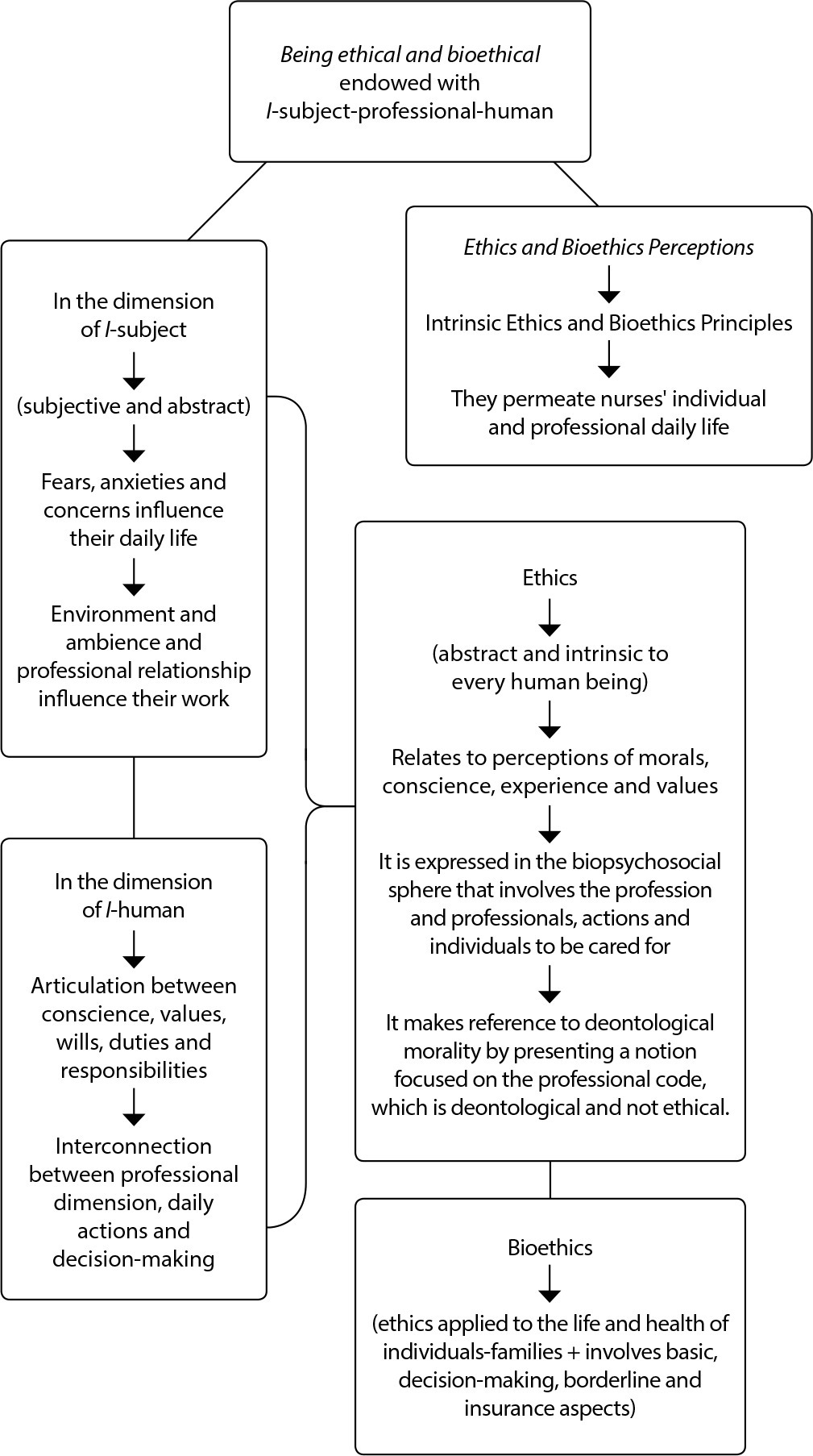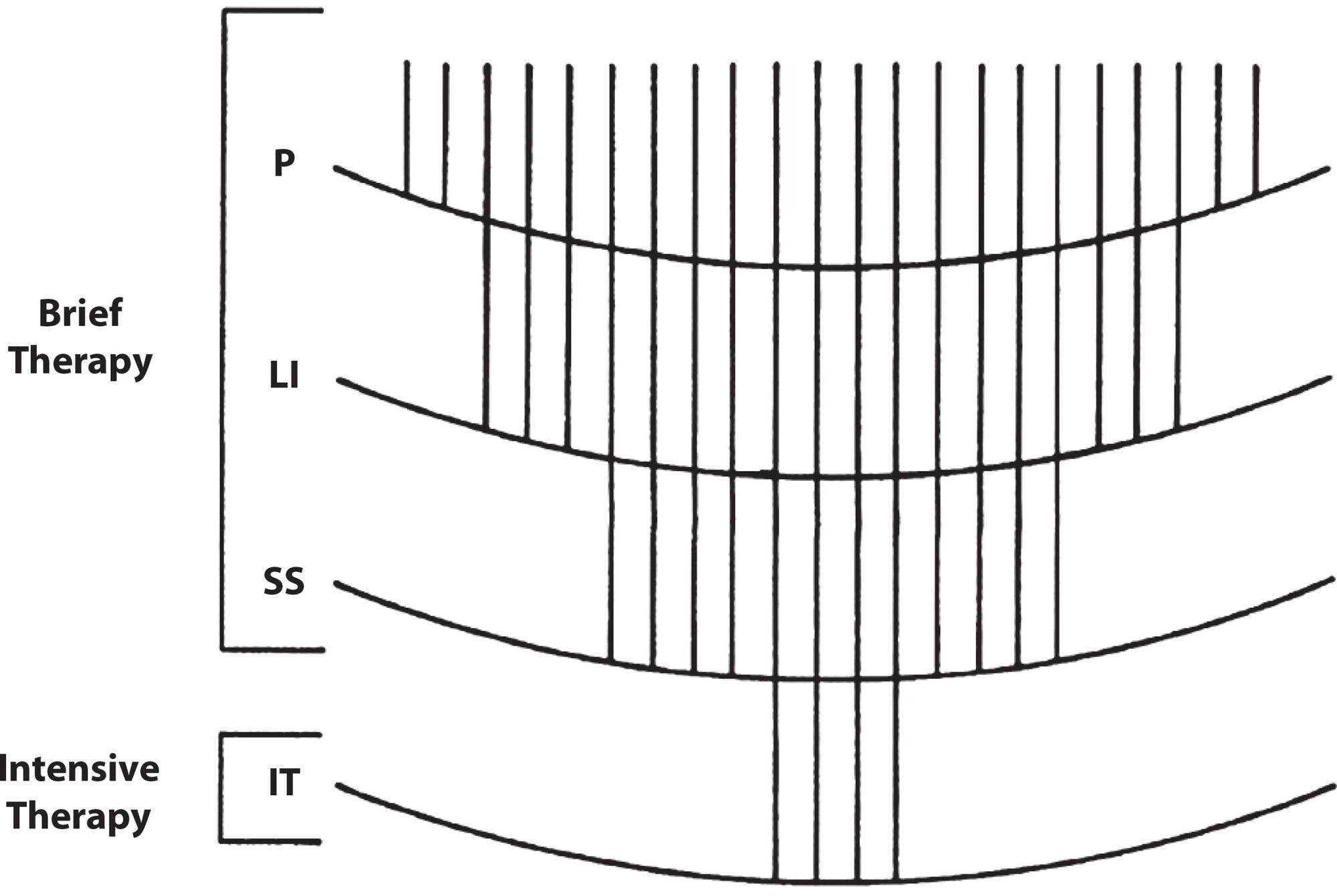-
ORIGINAL ARTICLE10-21-2022
“EMPODEREENF”: construction of an application for nurses’ continuing education on psychological violence against women
Revista Brasileira de Enfermagem. 2022;75(5):e20200391
Abstract
ORIGINAL ARTICLE“EMPODEREENF”: construction of an application for nurses’ continuing education on psychological violence against women
Revista Brasileira de Enfermagem. 2022;75(5):e20200391
DOI 10.1590/0034-7167-2020-0391
Views0See moreABSTRACT
Objective:
to construct a prototype of a mobile application on psychological violence against women to facilitate nurses’ continuing education.
Method:
an applied methodological research of technological development, based on the Contextualized Instructional Design method.
Results:
the prototype content was based on the learning objectives developed through a narrative review, which guided an integrative review to compile the information. The prototype is called “EmpodereEnf”, and is composed of an initial screen, bringing nurses as a target audience, and, soon after, offering nine general moblets for access to information such as: concepts, causes, manifestations and consequences of psychological violence; means for identification and approach in nursing consultation and health education; compulsory notification and referral; examples of cases of psychological violence and references.
Final considerations:
the prototype is a possibility for future coping interventions and a work tool for nurses in the face of psychological violence against women.

-
ORIGINAL ARTICLE10-21-2022
Management in the Family Health Strategy: workloads and structured institutional violence
Revista Brasileira de Enfermagem. 2022;75(3):e20220071
Abstract
ORIGINAL ARTICLEManagement in the Family Health Strategy: workloads and structured institutional violence
Revista Brasileira de Enfermagem. 2022;75(3):e20220071
DOI 10.1590/0034-7167-2022-0071
Views0See moreABSTRACT
Objectives:
to understand the relationship between workloads and institutional violence in Family Health Strategy managers’ practice.
Methods:
qualitative research using theoretical triangulation and data from semi-structured interviews. Participants were 35 managers of Basic Health Units in the five Regions of Brazil, who worked in the Family Health Strategy. We used thematic analysis and ATLAS.ti for data analysis.
Results:
workloads were analyzed, showing relationships with institutional violence. Thematic categories emerged: “related to the management work itself”; “related to other instances of health system management”; “related to users and community”. There was an interrelationship between increased managers’ workloads and institutional violence.
Final Considerations:
the Family Health Strategy is relevant for universal access to health and requires favorable institutional conditions for its effectiveness. Adverse scenarios lead to increased workloads, approaching institutional violence.

-
ORIGINAL ARTICLE10-21-2022
Self-care deficit among older men in the COVID-19 pandemic: implications for nursing
Revista Brasileira de Enfermagem. 2022;75:e20210933
Abstract
ORIGINAL ARTICLESelf-care deficit among older men in the COVID-19 pandemic: implications for nursing
Revista Brasileira de Enfermagem. 2022;75:e20210933
DOI 10.1590/0034-7167-2021-0933
Views0See moreABSTRACT
Objectives:
to analyze self-care deficit among older men in the COVID-19 pandemic in Brazil and to discuss the implications for nursing practice.
Methods:
web survey, multicentric, qualitative. A total of 120 older men participated, applying a form from April to June 2020 and April to August 2021. Reflective Thematic Analysis, interpreted by Orem’s Self-Care Deficit Theory, was used.
Results:
temporally, the self-care of older men was manifested in the self-care requirements – affective bonds, self-care for development – meditation and self-care with health deviations – remote consultations. Fully, partially compensatory, educational/support systems mobilized self-care.
Final Considerations:
as care managers, nurses can strengthen the support network for older men by activating professionals from the multidisciplinary team, family members, caregivers and the community to promote self-care and correct health deviations in times of crisis.

-
ORIGINAL ARTICLE10-21-2022
Circle dance: integrative and complementary practice in the daily health promotion for older adults
Revista Brasileira de Enfermagem. 2022;75:e20210003
Abstract
ORIGINAL ARTICLECircle dance: integrative and complementary practice in the daily health promotion for older adults
Revista Brasileira de Enfermagem. 2022;75:e20210003
DOI 10.1590/0034-7167-2021-0003
Views0See moreABSTRACT
Objectives:
to understand circle dance as an integrative and complementary practice for health promotion in older adults’ daily lives.
Methods:
an interpretive, qualitative study, based on Michel Maffesoli’s Comprehensive Sociology of Everyday Life. There were 20 participants, 17 older adults and three focalizers in circles held in Basic Health Units in a municipality in southern Brazil. Data were collected through interviews and observation, between September 2016 and March 2017, and analyzed through preliminary analysis, ordering, key links, coding and categorization.
Results:
three categories emerged that express the daily life of circle dance with older adults: circles that spin; challenges for new circles to spin; entering, being and staying in the circle.
Final Considerations:
circle dance provided older adults with a feeling of belonging to a group, combined with pleasure and well-being, contributing to promotion of older adults’ health.
-
ORIGINAL ARTICLE10-18-2022
Knowledge about antineoplastic drugs: implications for the health of nursing workers in a general hospital
Revista Brasileira de Enfermagem. 2022;75(3):e20210025
Abstract
ORIGINAL ARTICLEKnowledge about antineoplastic drugs: implications for the health of nursing workers in a general hospital
Revista Brasileira de Enfermagem. 2022;75(3):e20210025
DOI 10.1590/0034-7167-2021-0025
Views0See moreABSTRACT
Objectives:
to understand, from a worker’s health perspective, the knowledge of nursing professionals about the use of antineoplastic drugs in a general hospital.
Methods:
a descriptive and exploratory study with a qualitative approach. It was conducted at a university hospital, between April and August 2018, with 35 nursing professionals who responded to a semi-structured interview. Thematic analysis was used for data treatment.
Results:
from the data, three thematic categories emerged, related to the nursing professionals’ knowledge about antineoplastic drugs and their effects on workers’ health; situations in which exposure to these drugs occurs; and protection mechanisms for the patient, the environment, and the worker.
Final Considerations:
the nursing professionals had little knowledge about antineoplastic drugs. The practices related to handling and the necessary protective measures to deal with these drugs were empirically determined and relatively subsidized the knowledge acquired by the professionals.
-
ORIGINAL ARTICLE10-18-2022
Opinions of healthcare students on organ and tissue donation for transplantation
Revista Brasileira de Enfermagem. 2022;75(3):e20210001
Abstract
ORIGINAL ARTICLEOpinions of healthcare students on organ and tissue donation for transplantation
Revista Brasileira de Enfermagem. 2022;75(3):e20210001
DOI 10.1590/0034-7167-2021-0001
Views0See moreABSTRACT
Objectives:
to analyze the opinions of healthcare students on organ and tissue donation for transplantation.
Methods:
qualitative document analysis study, using the records of a database and analyzing data from two perspectives: 1) Lexical analysis, with the IRAMUTEQ software, and 2) Thematic content analysis.
Results:
from the analysis, 3 main categories were generated: 1) Organ and tissue donation as an act of love for others and an opportunity of a new beginning; 2) Clarification and awareness on organ and tissue donation; and 3) Importance of communicating the family and promoting organ and tissue donation.
Final Considerations:
despite being in favor of donation, students also recognize the presence of social taboos; the discussion in the family nucleus, promoting the theme and raising awareness in society are considered important. Additionally, the education of students is one of the possibilities of intervention for the issue.

-
ORIGINAL ARTICLE10-18-2022
Being ethical and bioethical in daily life of primary health care: nurses’ perceptions
Revista Brasileira de Enfermagem. 2022;75(3):e20210093
Abstract
ORIGINAL ARTICLEBeing ethical and bioethical in daily life of primary health care: nurses’ perceptions
Revista Brasileira de Enfermagem. 2022;75(3):e20210093
DOI 10.1590/0034-7167-2021-0093
Views0See moreABSTRACT
Objectives:
to understand the perceptions of ethics and bioethics and how to be ethical and bioethical in daily life of Primary Health Care, from the perspective of nurses.
Methods:
this is a Holistic-qualitative Multiple Case Study, based on Comprehensive Everyday Sociology, with 54 participants.
Results:
two subcategories and the category Being ethical and bioethical in daily life of PHC: nurses’ perceptions emerged. The ethical and bioethical being permeates a subjective and abstract self, whose fears, anxieties and concerns are intertwined with the human and professional dimensions in daily work and in personal-professional relationship. Ethics and bioethics perceptions emerge from subjectivity, established relationships, lived experiences and daily actions of nurses essential to the profession, professionals and individuals to be cared for.
Final Considerations:
ethical and bioethical perceptions and attitudes are essential to care, management and organizational actions, health care, and the safety of users and professionals.

-
ORIGINAL ARTICLE10-18-2022
Breast cancer screening program for risk groups: facts and perspectives
Revista Brasileira de Enfermagem. 2022;75(3):e20210050
Abstract
ORIGINAL ARTICLEBreast cancer screening program for risk groups: facts and perspectives
Revista Brasileira de Enfermagem. 2022;75(3):e20210050
DOI 10.1590/0034-7167-2021-0050
Views0See moreABSTRACT
Objectives:
to measure the frequency and compliance of breast cancer screening, according to the risk for this disease.
Methods:
a cross-sectional study with 950 female users of 38 public Primary Health Care services in São Paulo, between October and December 2013. According to UHS criteria, participants were grouped into high risk and standard risk, and frequency, association (p≤0.05), and screening compliance were measured.
Results:
6.7% had high risk and 93.3% standard risk, respectively; in these groups, the frequency and compliance of clinical breast examination were 40.3% and 37.1%, and 43.5% and 43.0% (frequency p=0.631, compliance p=0.290). Mammograms were 67.7% and 35.5% for participants at high risk, and 57.4% and 25.4% for those at standard risk (frequency p=0.090, compliance p=0.000).
Conclusions:
in the groups, attendance and conformity of the clinical breast exam were similar; for mammography, it was higher in those at high risk, with assertiveness lower than the 70% set in UHS.
-
ORIGINAL ARTICLE12-07-2020
Sarcopenia screening in elderly in primary health care: nurse knowledge and practices
Revista Brasileira de Enfermagem. 2020;73:e20200421
Abstract
ORIGINAL ARTICLESarcopenia screening in elderly in primary health care: nurse knowledge and practices
Revista Brasileira de Enfermagem. 2020;73:e20200421
DOI 10.1590/0034-7167-2020-0421
Views0See moreABSTRACT
Objective:
Describe the knowledge and practices of the Primary Health Care nurse on sarcopenia screening in the elderly.
Methods:
Qualitative study conducted with 24 Primary Health Care nurses. The data was collected through semi-structured interviews, recorded and later transcribed. The speeches were grouped in thematic categories, later analyzed, supported by Paulo Freire’s reference.
Results:
The findings showed that the primary care nurses’ knowledge of sarcopenia screening in the elderly was incipient and fragile. This reality is reflected in a gap in practice, although some instruments already require the registration of characteristics indicative of sarcopenia, such as the evaluation of the calf circumference.
Final Considerations:
The need to train nurses to perform sarcopenia screening and to implement a promotional and preventive care plan, which will result in improving the quality of life of the elderly assisted in Primary Care, was highlighted.
-
ORIGINAL ARTICLE02-17-2020
Social network of children with cronic disease: knowledge and practice of nursing
Revista Brasileira de Enfermagem. 2020;73(2):e20180371
Abstract
ORIGINAL ARTICLESocial network of children with cronic disease: knowledge and practice of nursing
Revista Brasileira de Enfermagem. 2020;73(2):e20180371
DOI 10.1590/0034-7167-2018-0371
Views0See moreABSTRACT
Objectives:
To identify the knowledge and practice of primary care nurses about the social network approach for families of children with chronic diseases.
Methods:
Qualitative research, conducted by means of interviews with 23 family health nurses, from one municipality in Paraíba and one in Rio de Janeiro, from June to July of 2017. The data were interpreted using thematic analysis.
Results:
Social network meant institutional support offered by services outside the unit, and socioeconomic problems involved the family context. In practice, nurses find it difficult to provide comprehensive care and establish ties with families. When referring to other professionals, a weakness in the counter-referral to the family health unit is found.
Final considerations:
Some gaps were found regarding the knowledge and practice of nurses regarding the social network approach, which requires professional training to strengthen social relationships and the necessary support for families of children with chronic diseases.
-
ORIGINAL ARTICLE10-21-2019
Inclusion of mental health in primary health care: care strategy in the territory
Revista Brasileira de Enfermagem. 2019;72(6):1677-1682
Abstract
ORIGINAL ARTICLEInclusion of mental health in primary health care: care strategy in the territory
Revista Brasileira de Enfermagem. 2019;72(6):1677-1682
DOI 10.1590/0034-7167-2018-0806
Views0See moreABSTRACT
Objective:
To analyze the strategies, challenges and possibilities of the articulation between mental health and primary health care from the perspective of health managers.
Method:
Exploratory, qualitative research carried out with 28 managers of mental health and primary care. The data were collected through semi-structured interviews between July and November 2013 and submitted to thematic content analysis.
Results:
The inclusion of mental health actions in primary care made it possible, in the view of managers, to increase users’ access to the care they need. This care strategy allows the extension of care practices in the territory, with matrix support as the main tool for the implementation of this care strategy.
Final considerations:
The articulation between primary care and mental health is a powerful device for psychosocial care, but it demands a new conformation of the Psychosocial Care Centers (Caps) and primary care services.
-
06-11-2021
Prevention of facial injuries caused by personal protective equipment during the COVID-19 pandemic
Revista Brasileira de Enfermagem. 2021;74:e20201219
Abstract
Prevention of facial injuries caused by personal protective equipment during the COVID-19 pandemic
Revista Brasileira de Enfermagem. 2021;74:e20201219
DOI 10.1590/0034-7167-2020-1219
Views0See moreABSTRACT
Objective:
Develop and validate a leaflet to guide health professionals in preventive measures related to injuries caused by the use of personal protective equipment during the COVID-19 pandemic.
Methods:
For the construction of the brochure, an integrative review was carried out in the main databases. The evaluation of the leaflet was made by 59 health professionals (nurses, physiotherapists, and doctors), using the Delphi technique.
Results:
In the first evaluation cycle, the items in the brochure were considered by the judges to be “inadequate” to “adequate”; the Content Validity Index was 0.80-1.0. After the adjustments suggested by the judges were implemented, the leaflet was sent back to the second evaluation cycle, in which all items were considered “adequate”, resulting in a Content Validity Index of 1.0.
Conclusion:
The developed brochure has content validity and can assist health professionals in preventing injuries caused by the use of personal protective equipment the developed brochure has content validity and can assist health professionals in preventing injuries caused by the use of personal protective equipment.

-
ORIGINAL ARTICLE07-08-2020
Self-efficacy in elderly with type 2 Diabetes Mellitus
Revista Brasileira de Enfermagem. 2020;73:e20180980
Abstract
ORIGINAL ARTICLESelf-efficacy in elderly with type 2 Diabetes Mellitus
Revista Brasileira de Enfermagem. 2020;73:e20180980
DOI 10.1590/0034-7167-2018-0980
Views0See moreABSTRACT
Objective:
to analyze the self-efficacy of elderly with type 2 diabetes mellitus and the relationship with sociodemographic, clinical, knowledge, and attitude variables.
Method:
a cross-sectional quantitative study conducted with 256 elderly people enrolled in Family Health Strategies. Data were obtained through interviews. Descriptive statistical analysis and multiple linear regression model were performed (p <0.05).
Results:
female, 69.95-year mean age, white skin color, 4-7 years of schooling, living with a partner, retirees, low individual monthly income, 6 to 15 years of illness, Catholics, living with children (with or without spouse). The elderly’s low knowledge and negative attitude prevailed. Self-efficacy was associated with attitude and knowledge in the domains “General and Specific Diet”, “Physical Exercise” and “Blood Glucose”.
Conclusion:
self-efficacy investigations in type 2 Diabetes Mellitus management in the elderly are important and encourage treatment adherence.
-
ORIGINAL ARTICLE09-16-2019
Knowledge of nursing student on the prevention of sexually transmitted infections
Revista Brasileira de Enfermagem. 2019;72(5):1145-1152
Abstract
ORIGINAL ARTICLEKnowledge of nursing student on the prevention of sexually transmitted infections
Revista Brasileira de Enfermagem. 2019;72(5):1145-1152
DOI 10.1590/0034-7167-2017-0801
Views0See moreABSTRACT
Objective:
To identify the knowledge and self-care actions taken by nursing undergraduate students of a Federal University of the South of Brazil, against Sexually Transmitted Infections.
Method:
Exploratory qualitative study, conducted 40 interviews with undergraduate students at the beginning and end of the course. The analysis was thematic, resulting in three categories.
Results:
Knowledge about the subject is a decisive factor for self-care, and the more knowledge, the greater the prevention. The dissemination of knowledge of students at the end of the course not only influences self-care but also health promotion in the social sphere.
Final considerations:
Knowledge is important in self-care and caring for others. The dissemination of knowledge becomes evident according to the complexity of the course. Stable relationships may interfere with the use or disuse of condoms in sexual relationships, a misnomer present in today’s society.
-
REFLECTION09-29-2022
Health care of deaf persons during coronavirus pandemics
Revista Brasileira de Enfermagem. 2022;75:e20201036
Abstract
REFLECTIONHealth care of deaf persons during coronavirus pandemics
Revista Brasileira de Enfermagem. 2022;75:e20201036
DOI 10.1590/0034-7167-2020-1036
Views0See moreABSTRACT
Objective:
To reflect about the barriers experienced by the deaf population during the COVID-19 pandemic, the proposals to overcome communication barriers in health care and the role of public policies in effecting the social inclusion of deaf people.
Methods:
Reflection based on studies on health care for deaf people, the COVID-19 pandemic and public accessibility policies.
Results:
The global crisis of COVID-19 has deepened pre-existing inequalities in the world, in addition to highlighting the vulnerability of people with disabilities, including deaf. Government, institutional and social initiatives to mitigate difficulties in communicating to deaf people have been made, but they are still insufficient to guarantee protection for them in this pandemic and full inclusion in health care.
Final considerations:
Social inclusion, supported by law, and the linguistic accessibility of deaf people still need to generate broad and concrete actions so that deaf people can enjoy their rights as citizens.
-
EXPERIENCE REPORT08-19-2019
PLISSIT model: sexual counseling for breast cancer survivors
Revista Brasileira de Enfermagem. 2019;72(4):1109-1113
Abstract
EXPERIENCE REPORTPLISSIT model: sexual counseling for breast cancer survivors
Revista Brasileira de Enfermagem. 2019;72(4):1109-1113
DOI 10.1590/0034-7167-2018-0525
Views0See moreABSTRACT
Objective:
Reporting the experience of use of the PLISSIT model as tool for the nursing care of breast cancer survivors with sexual dysfunction.
Method:
case study developed from January to August 2017, in the outpatient mastology clinic and sexuality service of a maternity in Fortaleza, Ceará, Brazil, with 15 breast cancer survivors.
Results:
sexual counseling sessions were conducted using the PLISSIT model to address sexual issues, highlighting the particularities of women who experience survival after the treatment of breast cancer.
Final considerations:
the model used in the practice of nursing care is customary and allows identifying issues experienced by women, as it has easy availability and practicality for use by nursing professionals, helping to address sexual matters with greater tranquility.

Search
Search in:
Nuvem de Tags
Adolescente (85) Atenção Primária à Saúde (239) COVID-19 (91) Criança (91) Cuidados de Enfermagem (269) Educação em Enfermagem (151) Educação em Saúde (139) Enfermagem (930) Enfermagem Pediátrica (86) Estudantes de Enfermagem (77) Estudos de Validação (131) Família (87) Idoso (208) Promoção da Saúde (99) Qualidade de Vida (104) Saúde do Trabalhador (86) Saúde Mental (145) Saúde Pública (82) Segurança do Paciente (150) Tecnologia Educacional (100)



